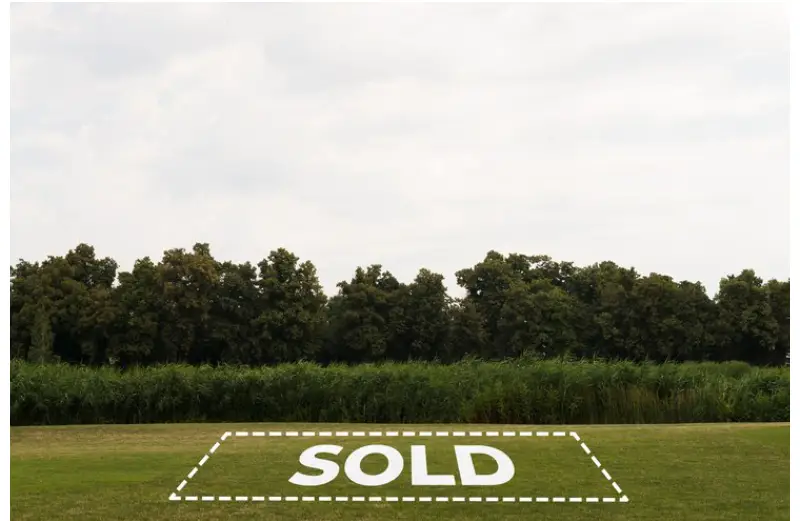Pricing your property accurately is one of the most critical steps when selling land by owner. An appropriate price attracts serious buyers while maximizing your returns. Unlike selling a home, pricing land involves different factors such as location, size, zoning, and market demand. Without the guidance of a real estate agent, it’s essential to familiarize yourself with the pricing process to avoid undervaluing or overpricing your property. Conducting thorough research, analyzing market trends, and understanding your land’s unique features are vital steps to take. Setting the right price not only boosts interest in your listing but also ensures a smooth and profitable transaction.
Factors To Consider When Selling Land By Owner
When selling land by owner, numerous factors influence pricing decisions. Location is crucial, as proximity to amenities, transportation, and growth areas significantly impacts value. Zoning regulations and potential uses of the land—residential, agricultural, or commercial—also determine its market appeal. Consider physical attributes like topography, soil quality, and access to utilities. Environmental factors, such as flood zones or protected areas, can limit development and affect value. Additionally, evaluate current market conditions, such as demand and supply trends in your area. By accounting for these factors, you can set a price that reflects the land’s true worth and attracts serious buyers.

How To Determine The Market Value When Selling Land By Owner?
Determining the market value of your land is a key step when selling land by owner. Start by researching the local real estate market to understand what similar properties are selling for. Use online listing platforms, government land records, or consult a property appraiser for an accurate estimate. Consider factors like zoning, infrastructure availability, and potential future developments in the area. Tools like comparative market analysis (CMA) can also help gauge the value of your property. By gathering and analyzing this data, you can confidently determine a fair market value that aligns with current trends, ensuring your price is competitive.
The Role Of Location In Selling Land By Owner
Location is one of the most significant determinants of land value. selling land by owner that is conveniently located near schools, shopping centers, workplaces, or recreational areas. Rural properties with scenic views or access to natural resources also hold appeal for specific buyers. Proximity to infrastructure such as highways, airports, and public utilities further boosts land value. If your property is in a developing area with new businesses or housing developments, it may be worth more due to its future potential. Understanding how your location impacts desirability and marketability is essential when setting a price for your land.
Comparing Selling Prices In The Area When Selling Land By Owner
One of the most effective ways to set a fair price is by comparing selling land by owner of similar properties in your area. Look at recently sold land that matches your property’s size, location, and features to gauge a baseline price. Platforms like MLS or real estate websites can provide insights into current market trends and listings. It’s also helpful to note how quickly similar properties are selling; longer durations may indicate overpricing. By understanding local competition, you can position your property competitively, ensuring you attract serious buyers while still achieving a fair market price for your land.
Tips For Setting A Competitive Price When Selling Land By Owner
- Setting a competitive selling land by owner balancing your financial goals with market conditions. Start by researching the local real estate market to understand the price range of similar properties. Highlight unique features of your land, such as proximity to amenities or development potential, to justify your price.
- Avoid pricing too high, as it may deter buyers, or too low, which undervalues your asset. Consider using professional tools like land appraisal services or online valuation tools to refine your pricing. A competitive price will position your property effectively in the market, attracting serious offers while ensuring a fair return.
How Property Size Impacts Pricing When Selling Land By Owner?
The size of your property directly influences its pricing when selling land by owner. Larger parcels often have a lower price per acre compared to smaller lots, as the market for extensive land tends to be more niche. However, smaller properties in high-demand areas may command a premium due to their affordability and usability. Consider how the land size aligns with its intended use—smaller lots may be ideal for residential buyers, while larger tracts suit agricultural or commercial purposes. By assessing the size in relation to potential buyers’ needs, you can set a price that aligns with the property’s appeal.
Evaluating Comparable Sales When Selling Land By Owner
Comparable sales, or “comps,” are critical in selling land by owner accurately. These are properties similar in size, location, and zoning that have recently sold in your area. Analyze their sale prices and conditions to establish a benchmark for your pricing. Look for similarities in features like road access, topography, and utility availability. Adjust for differences, such as if your land offers additional perks like a better view or fewer restrictions. Gathering data from public records, real estate platforms, or local agents can provide valuable insights. Properly evaluating comps ensures your price reflects the market and attracts potential buyers.
Conclusion
Pricing your property correctly is essential for a successful selling land by owner. By understanding the factors that influence value—location, size, market trends, and comparable sales—you can set a price that attracts buyers while maximizing your returns. Conducting thorough research, analyzing local sales, and leveraging professional valuation tools are crucial steps in the process. A well-priced property not only generates interest but also helps you close the deal faster. With the right strategy, selling land by owner can be both efficient and profitable, giving you control over the sale while achieving your financial goals.

Marian Shields, a dynamic marketing expert, orchestrates brand narratives with finesse and insight. With a keen understanding of consumer behavior and market dynamics, Marian navigates the ever-changing landscape of marketing strategy, crafting compelling campaigns that resonate with audiences worldwide. Through her strategic prowess and creative vision, she helps businesses of all sizes unlock their full potential and achieve tangible results in the competitive marketplace.





